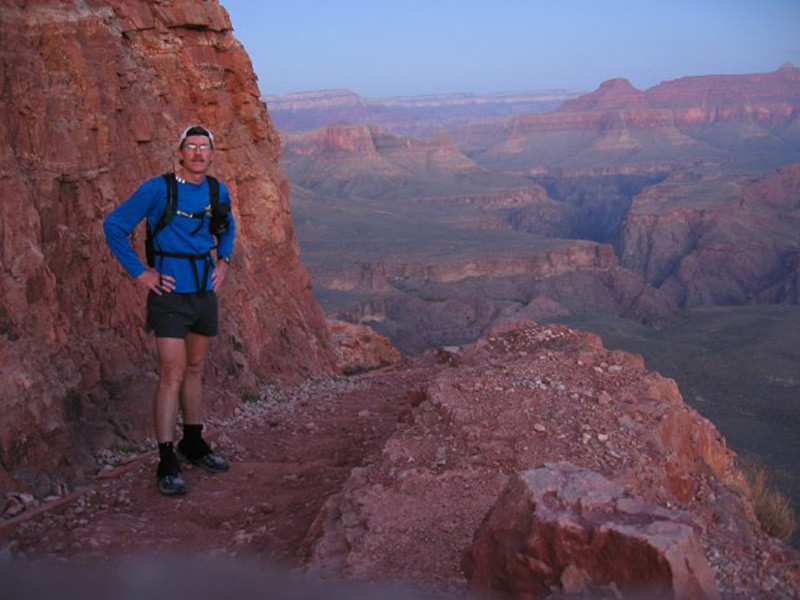Sodium and Dehydration

Advice based on experience by Karl King.
Karl isn't a physician, registered nurse or emergency medical technician. But as a veteran long-distance runner and director of races five kilometers runners suffering and staggering along wilderness trails. As the president of a sports drink company, King also has a vested interest when it comes to matters of sodium and dehydration. And when spring turns to summer and runners' needs increase, the Wisconsin developmental engineer's concerns are particularly keen.
After a long cold spring and no chance to acclimate to heat, runners should push a lot of water and sodium from the very start of an ultra, King recently offered in the first of an ongoing series of opinions on an ultramarathon forum on the Internet. Drink water and take some salt before the race begins. And race directors, please provide water and cups at the start line.
King, the race director of the Ice Age 50 - the country's third-largest 50-mile race - and a finisher of the Vermont 100, warns entrants about the dangers of low sodium levels. But he also knows that even experienced runners sometimes don't practice common sense guidelines - even if they're aware of the potential dangers. Therefore, with the ultra-marathon season in full swing and temperatures rising as summer approaches, consider (with his permission) King's gospel of sodium and hydration:
- Runners need 400 to 800 milligrams of sodium per hour during warm and hot weather conditions.
- The average pretzel or saltine has only 30 milligrams of sodium. Most sports drinks have more sodium, but still may not have enough sodium because they would taste like sea water if they had sodium levels equivalent to 800 milligrams per hour.
- Cola drinks typically contain little or no sodium. A steady diet of half water, half cola could lead to inadequate sodium after only a few hours of running.
- Don't be fooled by running in dry weather. Sweat may evaporate so fast in dry weather you may think you're not sweating much when you're actually sweating a great deal and losing water through your lungs as you exhale.
- Don't assume you're hydrated if you urinate late in a run. If you're low on sodium, your body will be forced to dump water to keep you from going into a state of hyponatremia (low sodium). Thus, it is possible to be dehydrated, but still be urinating.
- If you do get dehydrated, take salt and water together. Your body will not properly rehydrate in you don't take in sodium. Therefore, avoid soda and sparkling water unless you also take sodium.
- Don't trust your sense of thirst in a long run. Most people are actually dehydrated by the time they acknowledge their thirst. Use the standard refrain, eat before you're hungry, drink before you're thirsty as a guideline.
- If you do get dehydrated, your blood pressure will be low. If you take hot shower after the run, the blood vessels near the skin will dilate and your blood pressure will drop so low that your heart will not be able to push blood to the brain for a few seconds and you will faint in the shower.
- If you feel dizzy or have a queasy stomach during a run, slow down or sit for a while. If it is really hot, you weren't going to have a record time anyway, so why kill yourself to finish a few minutes sooner?
- The runners most in danger of dehydration are not the speedsters at the front of the race, but those at the back of the pack who spend more hours out in the heat.
- If there is ice at the aid stations, consider wearing a white mesh cap in which you can put ice cubes. It may look silly but it can reduce your body core temperature and help prevent a good training effort from becoming disastrous.
James Raia is a syndicated journalist and long-distance runner in Sacramento. Comments, suggestions and race information are welcomed and should be sent to 2301 J St. #205, Sacramento, CA 95816. E-mail address: RaiaRuns@aol.com.
